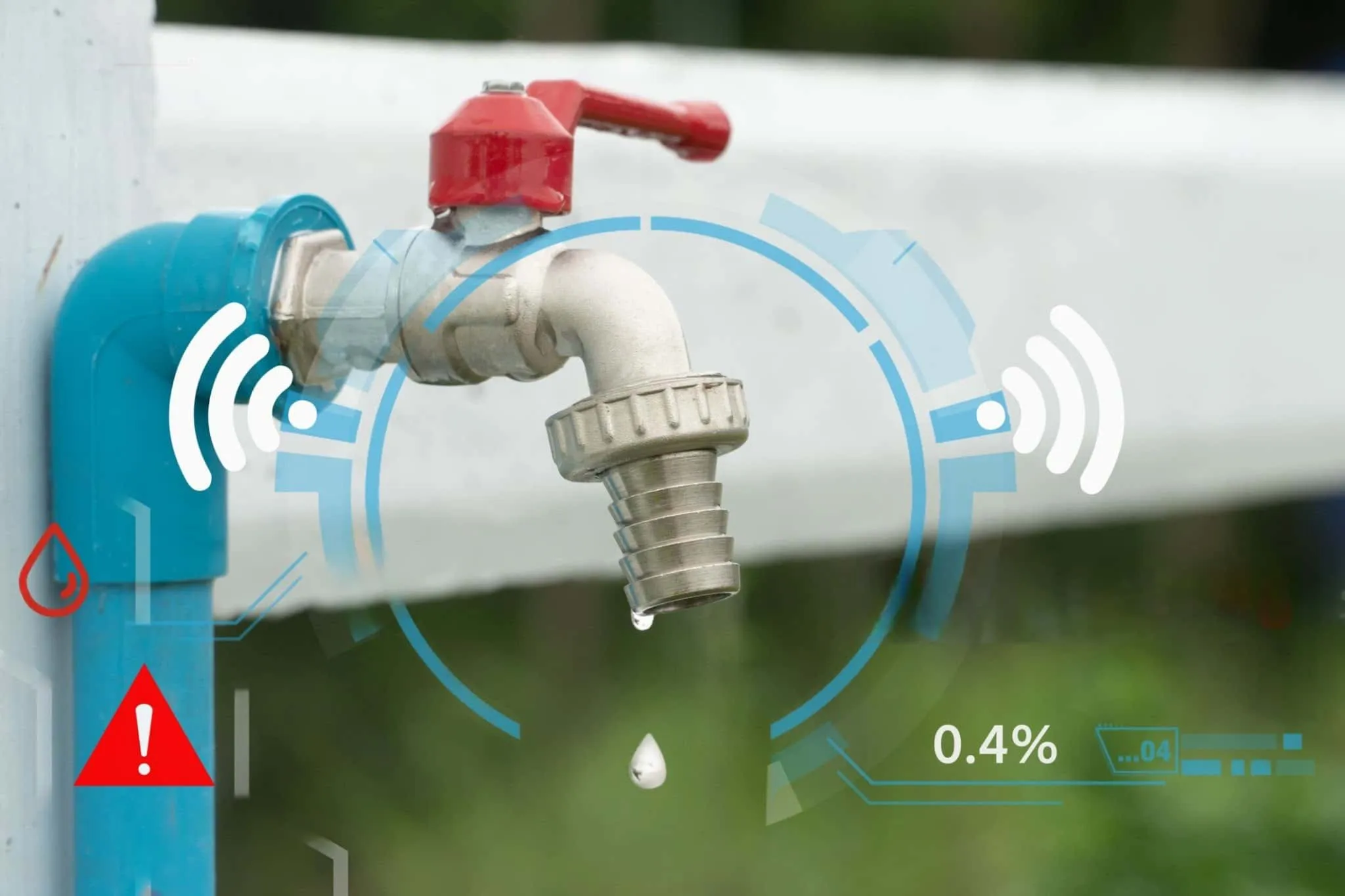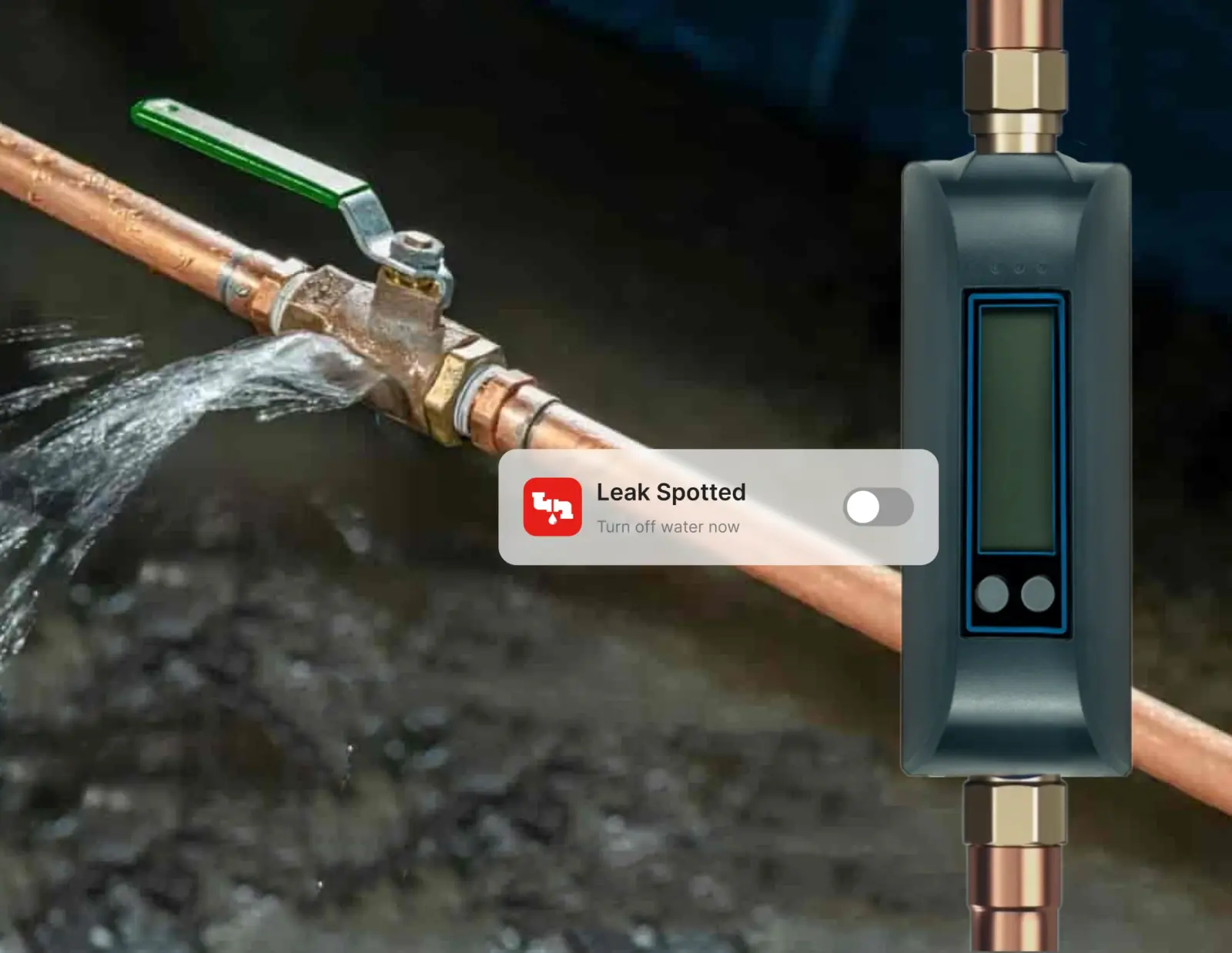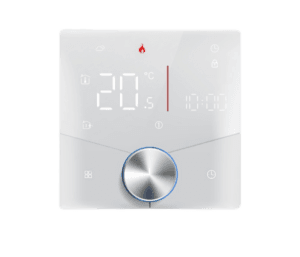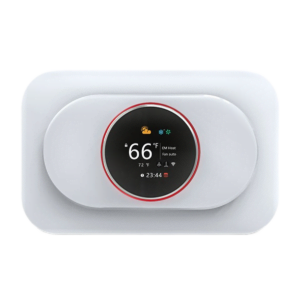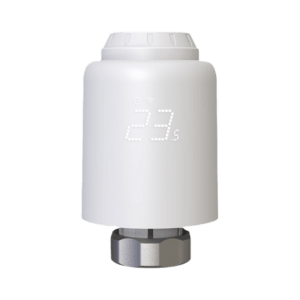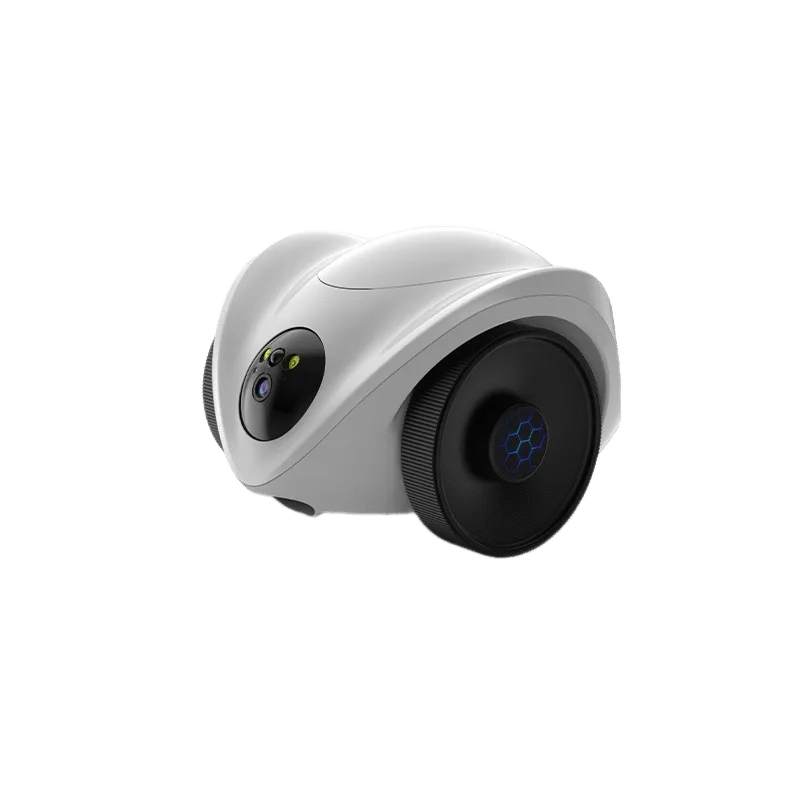Stoppa kostsamma läckor innan de börjar
1. Vad är en smart vattenventil? (Och varför den är viktig)
What is a smart water valve? It's one of the simplest, most powerful tools for protecting your home from leaks.
Water is essential in every home, but when it escapes from where it’s supposed to be, it can lead to disaster.
Whether it’s a hidden drip under the sink or a burst pipe in your basement, water damage can be costly and difficult to fix.
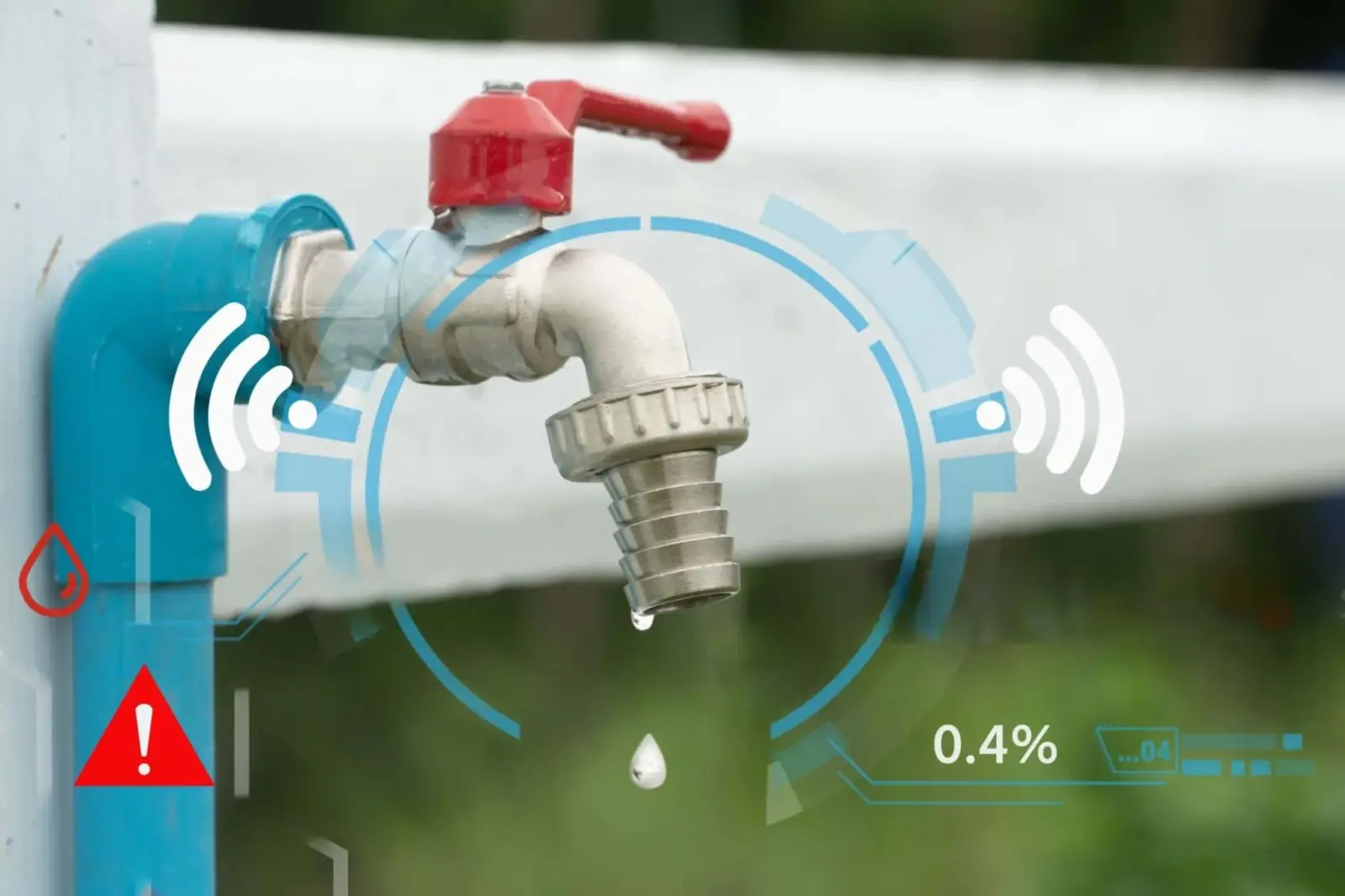
Smart water valves offer water damage protection by automatically stopping the water when they detect a leak.
Instead of reacting after damage occurs, these systems take action the moment something seems off—giving homeowners a way to prevent thousands in losses.
2. Hur en automatisk vattenavstängningsventil fungerar
An automatic water shut off valve monitors your plumbing 24/7. Inside the valve is a flow sensor that detects how much water is moving through your pipes.
If it senses something unusual—like continuous flow when no one’s using water—it can shut off the supply instantly.
Du kan också para ihop ventilen med läckagesensorer i hela huset.läckagedetektorer för underjordiska vattenkan placeras nära varmvattenberedare, tvättmaskiner eller bakom toaletter för att upptäcka fukt tidigt.
När den utlöses stänger systemet ventilen och varnar dig via en app eller avisering.
Most smart valves let you configure thresholds and preferences. Want an alert if more than 10 gallons flow non-stop? Easy. Want it to shut off within seconds? Also doable.
3. Varför varje hem borde ha en huvudavstängningsventil för vatten som du kan lita på
Varje hus har enhuvudavstängningsventil för vattenMen de flesta av dem är manuella, gömda bakom gipsskivor, i en källare eller någonstans man aldrig kollar.
Värre är att många inte ens vet var deras är.
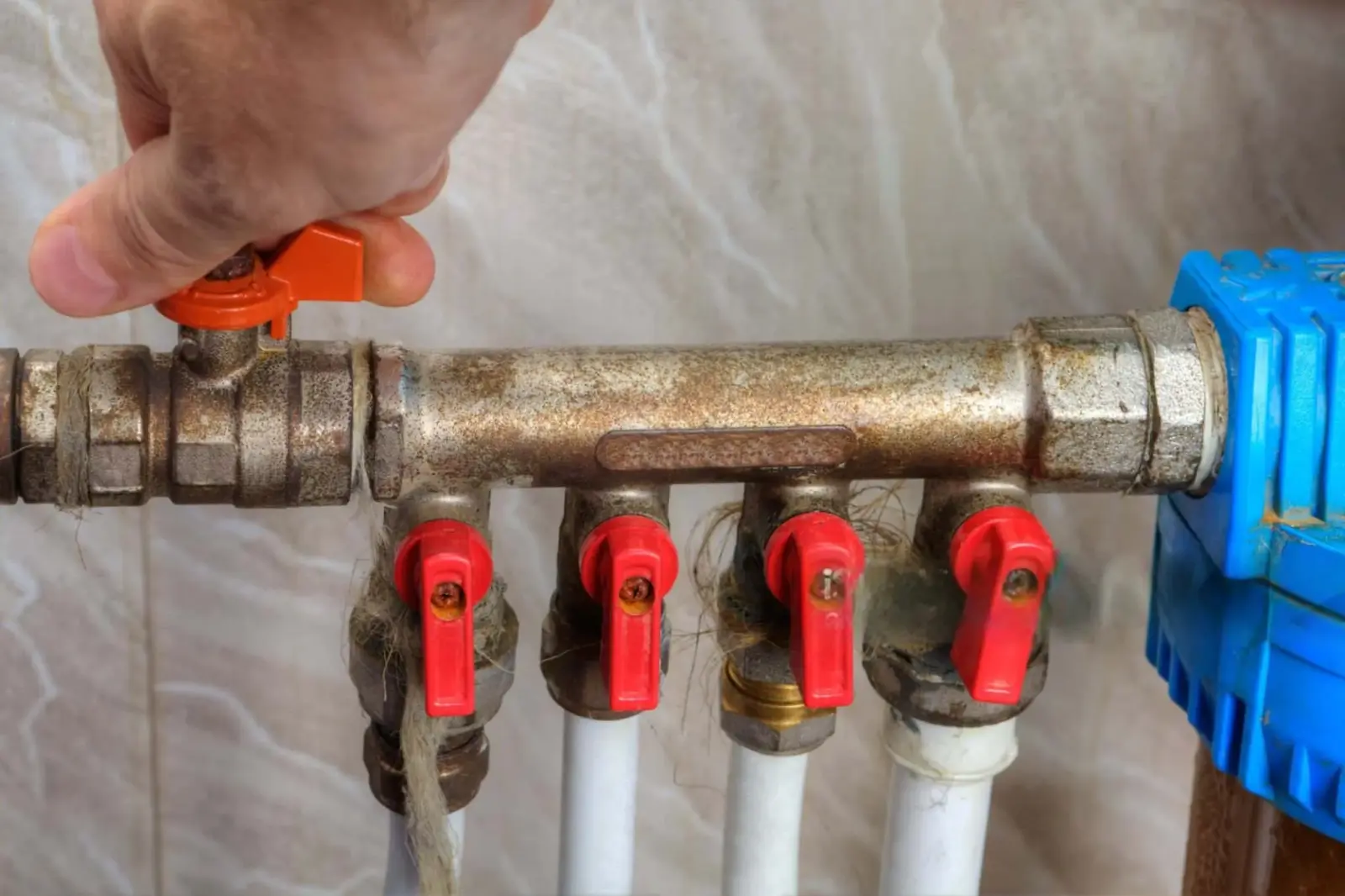
The danger? If a pipe bursts while you’re away, that valve does nothing unless someone’s there to turn it off.
That’s the value of a smart system—it doesn’t wait. It responds in seconds, without requiring tools or manual access.
Till skillnad från traditionella avstängningsventiler,smarta vattenventilerprovide real-time monitoring, mobile control, and automatic shutoff that keeps working even during power outages (thanks to battery backup).
Om du är osäker på var din huvudventil sitter eller hur du uppgraderar den, här är enSteg-för-steg-guide för att installera en smart vattenavstängningsventili ditt hem.
4. Kombinera smarta vattenventiler med läckagedetektorer
Smarta ventilerär kraftfulla på egen hand, men i kombination medvattenläckagedetektorer, blir de en del av ett komplett säkerhetsnät för vattnet.
Leak detectors use moisture sensors to pick up the first signs of water where it shouldn’t be—before it becomes visible damage.
For example, if your water heater starts leaking overnight, the detector will trigger the smart valve, shut off the water, and notify you immediately.
This combination is particularly valuable in basements, crawl spaces, or anywhere that water damage might not be noticed right away.
Är du osäker på vilken skyddsanordning som passar ditt hem?
Se vår sammanfattningjämförelse av smarta vattenskyddsenheter.
5. Vem drar mest nytta av en smart ventil?
Smarta vattenventilerär användbara för nästan alla husägare, men särskilt för:
- Frekventa resenärer eller semesterboendeägare
- Hyresvärdar och Airbnb-värdar
- Familjer med färdiga källare
- Äldre hus med åldrande VVS
- Hem med barn eller äldre familjemedlemmar
Dessa enheter är inte bara smarta – de är förebyggande.
They offer peace of mind by reducing the chance of returning home to water-soaked floors, ruined furniture, or expensive repairs.
6. Riktiga husägare, verkligt skydd
En husägare råkade ut för ett sprängt rör i badrummet på övervåningen medan de var på jobbet.
Ventilen detekterade det snabba flödet och stängde av vattnet inom några sekunder.
En annan räddade hundratals genom att fånga en slanghacka som lämnats öppen på bakgården.
I båda fallen, densmart vattenventilförhindrade allvarliga vattenskador.
Många husägare inser bara vikten av skydd efter att ha setttidiga tecken på vattenläckorSmarta enheter hjälper till att upptäcka dem tidigt – innan mögel eller skador uppstår.
These systems work quietly in the background, often unnoticed—until the moment they save you from disaster.
7. Sluttankar: En liten uppgradering med stor effekt
Installera ensmart vattenventilmed läckagedetektering är en av de mest praktiska uppgraderingarna du kan göra för att skydda ditt hem.
I kombination med sensorer och korrekt placering blir det en komplettvattenskadeskyddssystem.
It’s not about making your home 'smart'—it’s about making your home safer, more reliable, and less prone to costly surprises.
The Federal Emergency Management Agency (FEMA) also notes that even one inch of water can cause more than $25,000 in damage to a home.
Källa: FEMA.gov - Översvämningskostnader
8. Behöver du ett komplett vattenskadeskydd?
Letar efter ensmart avstängningsventilsom paras ihop med läckagedetektorer, erbjuder fjärrstyrning och stöder batteribackup?
Börja med ett system som är utformat för att skydda ditt hem från det oväntade.
Kolla in den smarta WiFi-avstängningsventilen
Learn how smart shutoff valves and leak detectors work together to prevent water damage — from kitchen sink drips to whole-home emergencies.
Utforska Smart Water Protection Guide →Vanliga frågor: Smarta vattenventiler — Vanliga frågor och svar
Vad är en smart vattenventil?
A smart water valve is a device that automatically shuts off your home's water if it detects a leak or unusual flow. Unlike traditional shutoff valves, it works on its own—no manual turning or guesswork. It connects to Wi-Fi and can be controlled through an app, giving you full control no matter where you are.
Är det verkligen värt att ha automatiska vattenavstängningsventiler?
If you've ever paid for water damage repairs—or worry about what would happen if a pipe burst while you’re not home—then yes, absolutely. These valves detect problems quickly and shut the water off before the damage spreads, providing powerful water damage protection.
Hur fungerar egentligen en smart ventil?
Smart valves use flow sensors or leak detectors to monitor water usage in real time. If something unusual happens—like continuous flow for too long—they send a signal to close the main water shut off valve. Many models let you control everything from your phone and work even during power outages.
Var ska jag installera en smart ventil?
Most people install them at the point where water enters the house—usually near the water meter, in the basement or garage. For added protection, you can also pair them with underground water leak detectors or place sensors near water-prone appliances like your washer or water heater.
Kommer det att stoppa alla typer av läckor?
Smart valves are great at catching sudden bursts, slow leaks, or forgotten taps. While no system is perfect, combining the valve with multiple leak detectors and alerts gives you the best shot at preventing major water disasters—and major bills.
